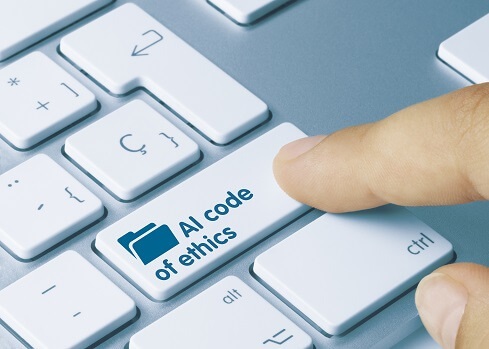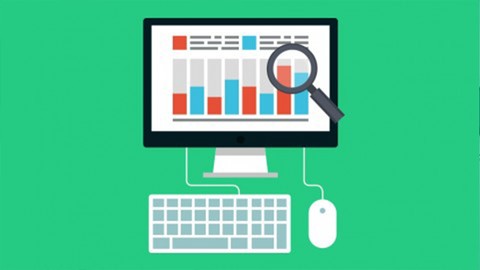Artificial intelligence systems derive their energy in finding out to accomplish their responsibilities directly from details. As a final result, AI systems are at the mercy of their education details and in most instances are strictly forbidden to discover anything at all outside of what is contained in their education details.

Image: momius – inventory.adobe.com
Information by alone has some principal issues: It is noisy, almost hardly ever finish, and it is dynamic as it constantly modifications in excess of time. This sound can manifest in many methods in the details — it can come up from incorrect labels, incomplete labels or misleading correlations. As a final result of these issues with details, most AI systems ought to be extremely very carefully taught how to make decisions, act or respond in the serious entire world. This ‘careful teaching’ involves three levels.
Stage 1: In the first stage, the out there details ought to be very carefully modeled to comprehend its underlying details distribution inspite of its incompleteness. This details incompleteness can make this modeling activity almost impossible. The ingenuity of the scientist comes into perform in earning sense of this incomplete details and modeling the underlying details distribution. This details modeling action can include details pre-processing, details augmentation, details labeling and details partitioning among other ways. In this first stage of “care,” the AI scientist is also involved in managing the details into distinctive partitions with an specific intent to lessen bias in the education action for the AI program. This first stage of care requires resolving an unwell-described difficulty and therefore can evade the rigorous solutions.
Stage two: The 2nd stage of “care” involves the thorough education of the AI program to lessen biases. This includes in-depth education approaches to guarantee the education proceeds in an impartial method from the extremely commencing. In many instances, this action is still left to common mathematical libraries these as Tensorflow or PyTorch, which handle the education from a purely mathematical standpoint without having any understanding of the human difficulty staying dealt with. As a final result of making use of business common libraries to teach AI systems, many apps served by these AI systems skip the prospect to use exceptional education approaches to control bias. There are attempts staying created to incorporate the correct ways in just these libraries to mitigate bias and offer exams to uncover biases, but these tumble shorter because of to the lack of customization for a specific software. As a final result, it is likely that these business common education procedures more exacerbate the difficulty that the incompleteness and dynamic character of details already creates. Nevertheless, with plenty of ingenuity from the experts, it is achievable to devise thorough education approaches to lessen bias in this education action.
Stage three: Ultimately in the third stage of care, details is permanently drifting in a are living production program, and as these, AI systems have to be extremely very carefully monitored by other systems or people to capture performance drifts and to allow the correct correction mechanisms to nullify these drifts. For that reason, scientists ought to very carefully acquire the correct metrics, mathematical tricks and monitoring applications to very carefully handle this performance drift even while the original AI systems might be minimally biased.
Two other problems
In addition to the biases in just an AI program that can come up at each individual of the three levels outlined higher than, there are two other problems with AI systems that can result in not known biases in the serious entire world.
The first is connected to a big limitation in latest day AI systems — they are pretty much universally incapable of better-stage reasoning some outstanding successes exist in controlled atmosphere with perfectly-described procedures these as AlphaGo. This lack of better-stage reasoning greatly limitations these AI systems from self-correcting in a normal or an interpretive method. Though one might argue that AI systems might acquire their own technique of finding out and understanding that will need not mirror the human approach, it raises concerns tied to obtaining performance assures in AI systems.
The 2nd obstacle is their inability to generalize to new instances. As quickly as we action into the serious entire world, instances regularly evolve, and latest day AI systems proceed to make decisions and act from their previous incomplete understanding. They are incapable of implementing principles from one area to a neighbouring area and this lack of generalizability has the opportunity to make not known biases in their responses. This is the place the ingenuity of experts is all over again demanded to safeguard versus these surprises in the responses of these AI systems. One safety system made use of are assurance versions all over these AI systems. The part of these assurance versions is to fix the ‘know when you really don’t know’ difficulty. An AI program can be confined in its abilities but can even now be deployed in the serious entire world as extended as it can acknowledge when it is uncertain and ask for assist from human agents or other systems. These assurance versions when developed and deployed as component of the AI program can lessen the influence of not known biases from wreaking uncontrolled havoc in the serious entire world.
Ultimately, it is important to acknowledge that biases arrive in two flavors: regarded and not known. Thus far, we have explored the regarded biases, but AI systems can also endure from not known biases. This is substantially tougher to safeguard versus, but AI systems developed to detect hidden correlations can have the potential to uncover not known biases. Thus, when supplementary AI systems are made use of to evaluate the responses of the primary AI program, they do possess the potential to detect not known biases. Nevertheless, this kind of an approach is not however commonly researched and, in the long run, might pave the way for self-correcting systems.
In summary, whilst the latest technology of AI systems has tested to be particularly capable, they are also far from fantastic specially when it comes to reducing biases in the decisions, actions or responses. Nevertheless, we can even now acquire the correct ways to safeguard versus regarded biases.

Mohan Mahadevan is VP of Investigation at Onfido. Mohan was the former Head of Personal computer Vision and Machine Finding out for Robotics at Amazon and previously also led analysis endeavours at KLA-Tencor. He is an specialist in computer vision, device finding out, AI, details and model interpretability. Mohan has in excess of 15 patents in regions spanning optical architectures, algorithms, program style, automation, robotics and packaging technologies. At Onfido, he prospects a workforce of expert device finding out experts and engineers, primarily based out of London.
The InformationWeek neighborhood brings jointly IT practitioners and business industry experts with IT tips, schooling, and thoughts. We strive to highlight technological innovation executives and topic matter industry experts and use their information and ordeals to assist our audience of IT … Check out Full Bio
Much more Insights




